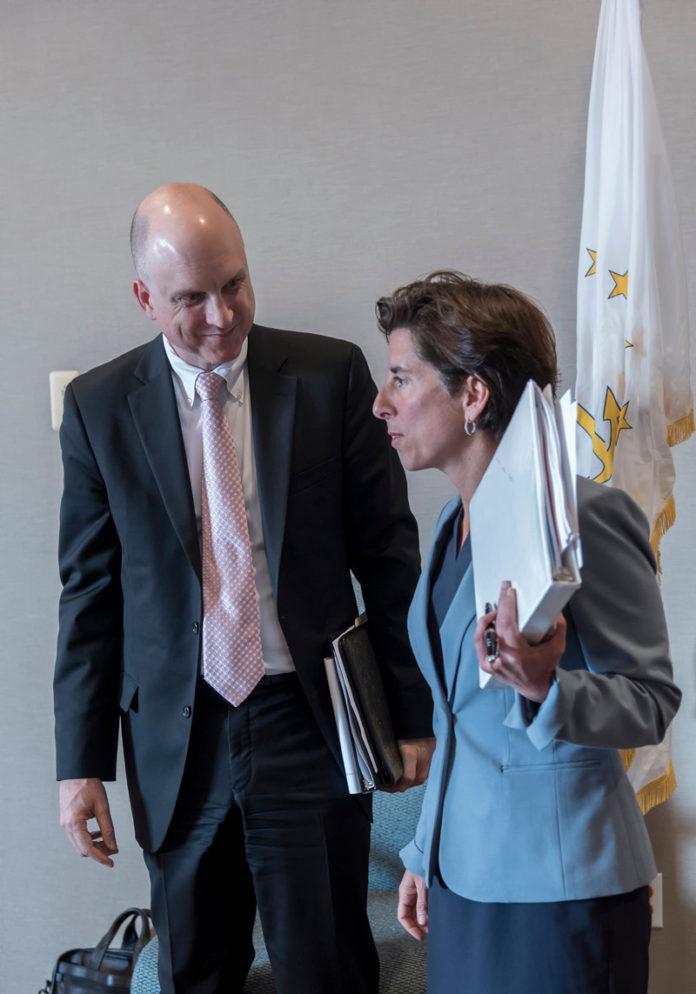
PROVIDENCE – A record number of Rhode Island students took College Board tests last year, but Scholastic Aptitude Test scores fell compared with the prior year, according to a report released by the College Board on Tuesday.
More than 6,000 members of the Class of 2016 took SATs, an increase of 1 percentage point from the previous year, and 5,040 seniors took advanced placement tests, an increase of 7.8 percentage points from the Class of 2015. In addition, the report found every high school in the state with a graduating class participated in the SAT.
There were 8,657 AP tests taken by Rhode Island public school students in the Class of 2016. Of those tests 4,754 were graded at 3 points or higher, which will earn the test taker college credits at many postsecondary institutions. The exams are scored between 1 and 5 points and this increase represents a 7.7-percentage point rise from 2015.
Education Commissioner Ken Wagner said AP courses provide students with challenging opportunities in preparation for further studies.
“Students who participate in college readiness assessments such as the SAT and AP tests are more likely to see a college education as a part of their future. That’s good for students and good for Rhode Island, as we need more college graduates who will be ready to enter the challenging careers of the 21st century economy,” he added.
SAT scores among Rhode Island public high school seniors were less impressive. A 2 point decline to 478 points was witnessed in critical reading and 3 point slips were measured in mathematics (478) and writing (465). SAT exams are scored between 200 and 800 points.
The national average also saw decreases with reading down 2 points, mathematics down 4 points and writing down 3 points. However, Rhode Island scores are below the national average by 9 points in reading, 16 points in mathematics and 7 points in writing.
The Rhode Island high school with the highest SAT scores in all three categories was Barrington High School, where students scored a 586 in reading, 596 in mathematics and 572 in writing.
Students enrolling in AP tests in the Ocean State were much more diverse in 2016 according to the College Board report. Thirteen percent more African American students participated for a total of 287 students and 33 percent more Hispanic students, 914 total students, took the test in 2016.
Students at Providence’s Classical High School scored the highest on AP tests in the state with 590 exams scored at 3 points or better and had the most number of exams taken in the state, 1,155.
The Preliminary Scholastic Aptitude Test is taken by 10th- and 11th-graders and last year there were 4,549 Rhode Island 10th-graders who took the test, up 23.4 percentage points, and 5,308 11th-graders, a 1.4-percentage point increase.
These participation rates are expected to rise by 40 percent, or even double, after an initiative put forward by Gov. Gina M. Raimondo that will eliminate the $90 test fee for both 10th- and 11th-graders this school year.
All fourth, eighth and 11th grade students in Rhode Island public schools sat for the NECAP Science test this May and their scores revealed close to 29 percent were proficient or above. This reflects a 2 percentage point dip from 2015.
Wagner said he was “disappointed” in the NECAP scores, “especially as we begin to focus on the important role science will play in growing areas of the Rhode Island economy such as health-care industries and information technology.”
Because of the low scores, he added that the R.I. Department of Education plans to meet with district and school leadership to discuss science education in the state.












